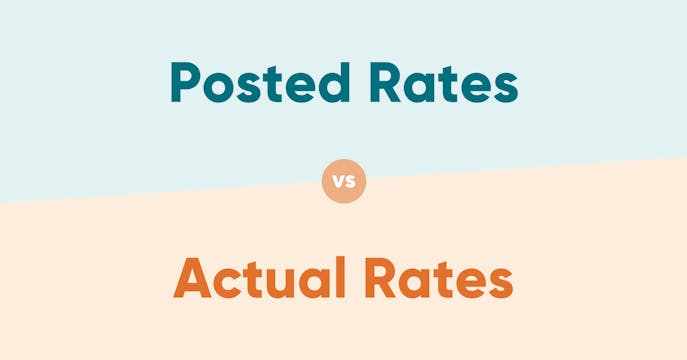When does breaking your mortgage actually save money?
The cost of breaking your mortgage — and whether a lower rate is worth it — depends on a few key details, and can come down to whether the interest you save exceeds the penalty you pay.
- The original rate used (big banks may use a higher posted rate instead of your contract rate, which can make the penalty more costly).
- The rate spread between the current higher rate and the desired lower rate.
- Your mortgage balance at the time of the request.
- The time remaining in your term.
The most important thing to know? It's always the right time to ask your expert broker about your mortgage details to stay on top of your homeowning goals.
Let's take a look at these client examples.*
With mortgage rates recently declining, Tom, Alex, Taylor, and Nancy came to True North Mortgage for unbiased advice about whether breaking their term for a lower rate made financial sense (to save more). All the clients listed below have their current mortgages with a big bank.
Tom: With my $286K mortgage, is it worthwhile to break my 6.34% fixed rate?
Tom got a mortgage for a rental property 2 years ago at a 5-year fixed rate of 6.34% and was looking to save by breaking for a lower rate. He consulted with his bank but wasn't thrilled with its options. He spoke with a True North expert broker, who offered to switch to a new mortgage with a different lender at a lower fixed rate of 4.49% for the remainder of his term.
In Tom's case, here are the break numbers:
- With a contract rate of 6.34%, his bank would charge an IRD penalty of $7,518 to break his term (other admin or legal fees may apply).
- The penalty would be added to the mortgage balance to avoid out-of-pocket payment.
- At his new rate of 4.49%%, he would save about:
- $277 per month with a lower mortgage payment
- Over the remaining 3 years, $14,800 on interest
- Over and above the penalty, $7,375 total savings
Why didn't Tom have to pay the entire $7,518 penalty out of pocket?
Most lenders will allow up to a $3,000 addition to an insured mortgage balance. Adding a larger penalty would require a refinance and would then be considered an uninsured mortgage. In Tom's case, his mortgage was already a conventional mortgage (uninsured).
In this case, Tom decided it was worthwhile to make a switch at this time. His expert True North broker helped him through a seamless and stress-free process that saved him thousands.
Alex: With my $500K mortgage, is it worthwhile to break my 5.75% fixed-rate?
Alex has a larger mortgage than Tom — a $500K mortgage taken out 2 years ago, with 3 years left on their current term. Already a True North client, they called their broker to ask whether switching to a lower fixed rate of 3.89% made savings sense.
Here are Alex's break numbers:
- With a contract rate of 5.75%, their bank would use the current rate of 4.0% to calculate the interest for the remaining 3 years.
- Alex's IRD penalty would be $26,250 (other admin or legal fees may apply).
- At the new rate of 3.89%, they would save $692 by term's end after accounting for the penalty.
Alex couldn't afford to pay the extra $23,250 out of pocket (after $3,000 is absorbed into the mortgage loan), nor did they want to add it to the mortgage balance through a refinance. They decided to wait out the term and get their best rate through us at renewal time with no penalty charged.
Taylor: Should I switch my 5.99% fixed rate to a lower variable rate?
Taylor inquired with True North about switching from a big bank to THINK Financial's lower variable rate with only 2 years remaining in their fixed-rate mortgage term:
- With a balance of $480K and a 5-year fixed rate of 5.99%, they wanted to switch to a variable rate, which was 4.45% at that time (prime - 1.0%).
- Penalty for breaking was $7,000.
- Switching to the lower variable rate would save about $13,500 beyond the penalty for the remaining two years.
- Their variable rate has dropped since then to 3.45% (saving them even more).
That initial $13,500 in savings was primarily due to a narrower rate spread and a slightly smaller mortgage, even though the original contract rate was higher. Plus, Taylor switched to a variable rate during a period of declining prime rates, which helped them save more over their term.
Nancy: Should I switch my variable rate of 4.20% to a lower fixed rate?
Nancy has a $500K mortgage with 3 years remaining on her 5-year variable-rate term and was looking to switch to a lower fixed-rate offer of 3.89% at a different lender.
Here are the numbers for Nancy to break and switch:
- At her current variable-rate term of 4.20% (prime -0.25%), to break her term and switch lenders, the 3-month interest charge would be $5,205.
- The lower fixed rate of 3.89% (remaining term of 3 years) would mean the break would cost her $727, with the rate savings not offsetting the penalty cost in that time frame.
Nancy could also convert to a fixed rate with her current lender, penalty-free. However, the fixed rate offered to her was higher than her current variable rate, so she decided to keep her variable rate mortgage.




